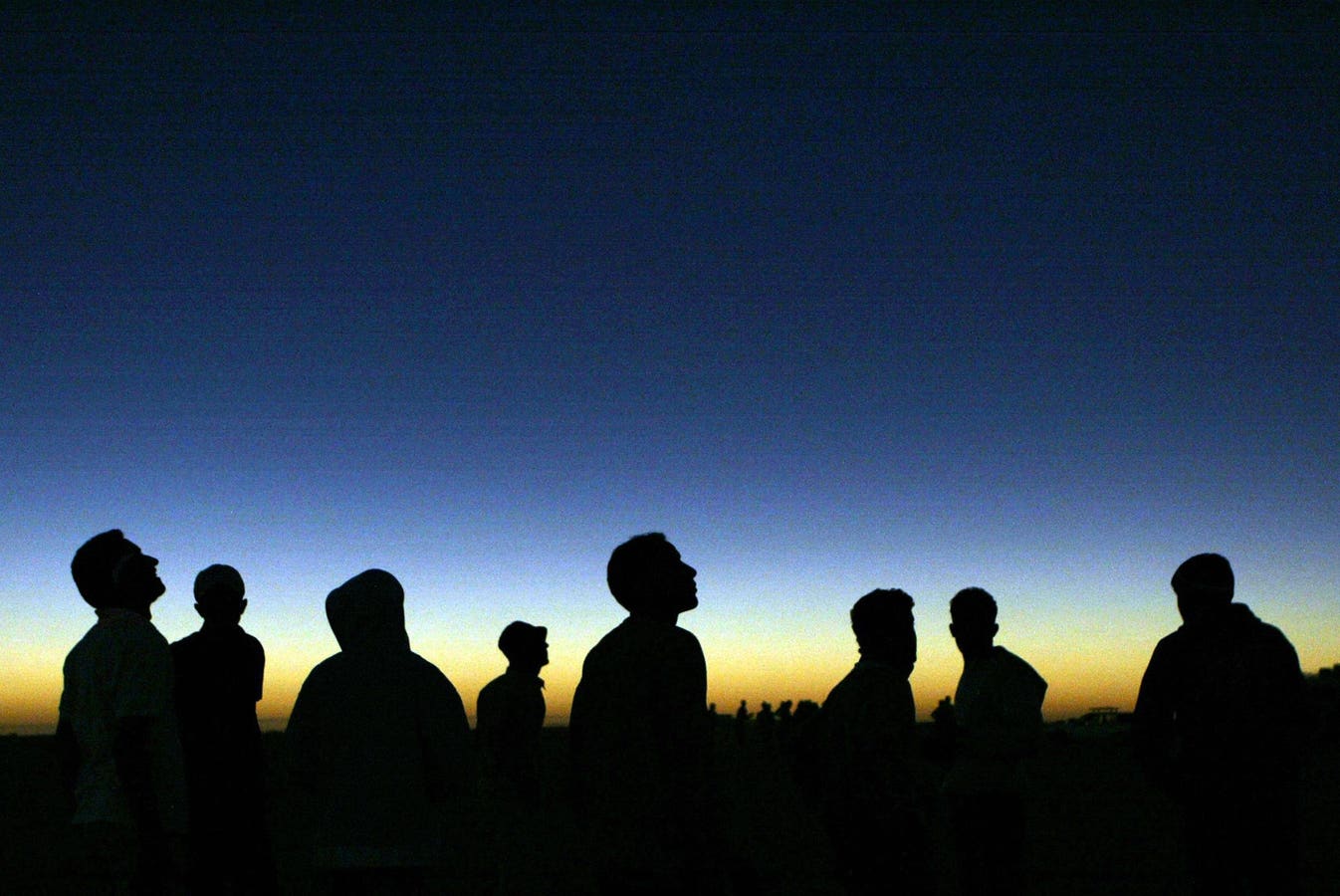Libyan youths watch the solar eclipse in the desert tourist camp in Galo, 1300 km south of the Libyan capital of Tripoli, 29 March 2006. (Credit: KHALED DESOUKI/AFP via Getty Images)
AFP via Getty Images
Where were you on April 8, 2024? If you were in North America and, more specifically, within the narrow path of totality — you would have experienced something sublime. Darkness in the day. The sun’s corona appeared around the moon’s silhouette. Entire communities gathered for an event that made politics and division seem silly.
A total solar eclipse is an amazing event — occurring just once every 366 years, on average, on any one place on Earth. On Aug. 22, 2027, one of those places is Luxor in Egypt, ancient Thebes — the capital of Ancient Egypt and home to the Valley of the Kings, Karnak Temple, Luxor Temple and the Temple of Hatshepsut. Here’s everything you need to know about the 2027 total solar eclipse as anticipation builds for the century’s longest remaining totality.
Where The 2027 Total Solar Eclipse Will Be Visible
The track of this eclipse is 9,462 miles (15,227 kilometers) long, beginning in the North Atlantic Ocean and ending in the Indian Ocean via the Iberian Peninsular, North Africa and the Arabian Peninsular. On the way, it will cross southern Spain, northern Morocco, northern Algeria, northern Tunisia, the northern coast of Libya, Egypt, the northeast corner of Sudan, southwestern Saudi Arabia, Yemen, northeastern Somalia and the northern islands of the British Indian Ocean Territory. The path of totality is about 160 miles (275 kilometers) wide.
How Long Totality Will Last During The 2027 Eclipse
It all depends on where you watch from. Within any path of totality, it lasts longest on the centerline, but in addition, there’s always a place of maximum eclipse at local midday. That’s simply where the moon is closest to Earth (our planet is curved, remember!). On Aug. 2, 2027, that place is just to the southeast of Luxor, where an exceptionally long totality of six minutes and 23 seconds will take place — the longest remaining of the 21st century.
The Best Places To View The 2027 Eclipse
In advance of most total solar eclipses, everyone wants to know where the best places are to watch. Usually, that means where the totality will last longest and where the weather will likely be clear. In 2027, that means Luxor for both. Clear weather is almost guaranteed, according to eclipse weather expert Jay Anderson, who writes: “Some parts of the eclipse track — over Libya and western Egypt — have seen no August cloud on eclipse day whatsoever in the past 23 years.”
However, given that huge crowds are certain in Luxor, there are other places to consider where the totality duration is a little shorter. Weather-wise, standouts include southern Spain, northern Morocco and anywhere in Egypt except for the coast.
- Cadiz, Spain: 2 minutes and 47 seconds of totality.
- Tangier, Morocco: 4 minutes and 48 seconds of totality.
- Oran, Algeria: 5 minutes and 6 seconds of totality.
- Kerkennah Islands, Tunisia: 5 minutes and 42 seconds of totality.
- Siwa Oasis, Egypt: 5 minutes 29 seconds of totality.
- Luxor, Egypt: 6 minutes 22 seconds of totality.
The Next Total Solar Eclipse
The next total solar eclipse is on Aug. 12, 2026, when Greenland, Iceland, and Spain will witness a maximum 2-minute, 18-second totality.
The next total solar eclipse in the contiguous U.S. will occur on Aug. 22, 2044, when Greenland, Canada’s Northwest Territories, South Dakota and North Dakota will witness a maximum of 2 minutes and 4 seconds totality. Disclaimer: I am the editor of WhenIsTheNextEclipse.com and the author of When Is The Next Eclipse? A traveler’s guide to total solar eclipses 2026-2034.
Wishing you clear skies and wide eyes.









